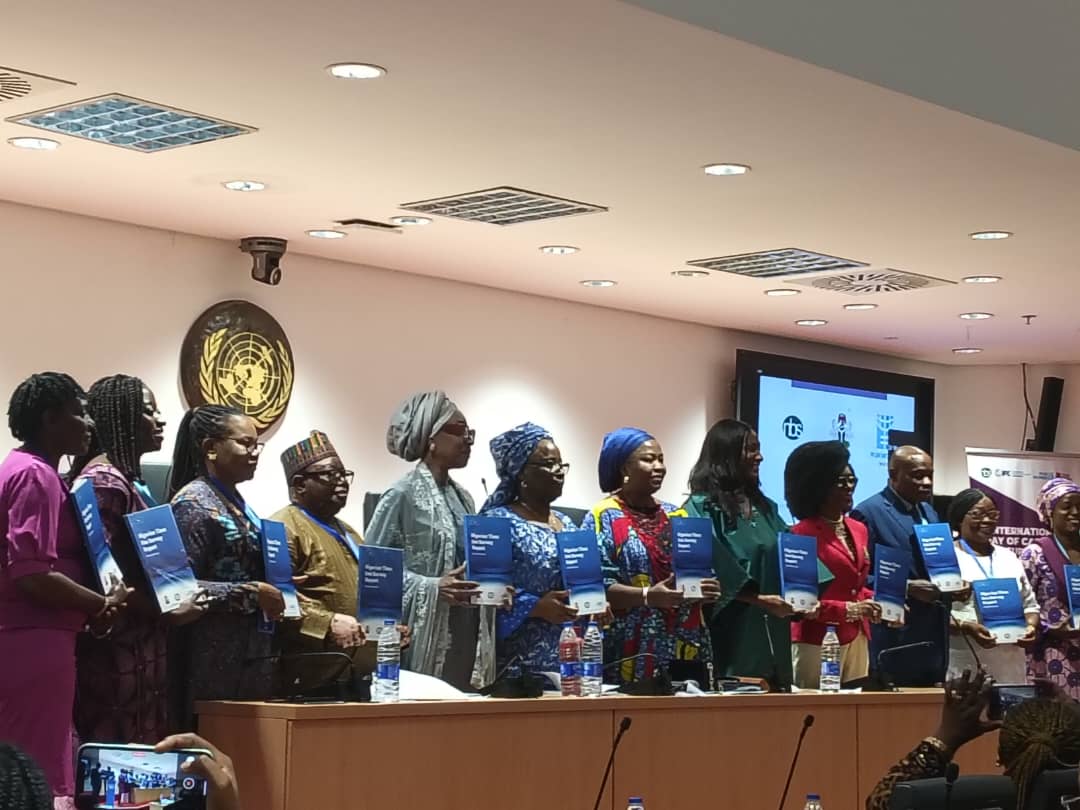
About 17 million new jobs could be available if the recommendations of the Dissemination of the Nigeria Time Use Survey (NTUS) conducted by the National Bureau of Statistics (NBS) in partnership with UN Women Nigeria are implemented.
The survey revealed that investment in the care economy in Nigeria has the potential of generating about 17 million new jobs in the country.
Speaking at the presentation of the Nigeria Time Use Survey and commemoration of the International Day of Care and Support in Abuja, on Wednesday, the Head, Gender and Social Inclusion, NBS, Ms. Caroline Faturoti, said the new jobs, particularly in childcare, would primarily benefit women and contribute to reducing the gender employment gap.
, further explained that the Survey, being the first of its kind in Nigeria, has provided critical data on how women and men allocate their time to paid and unpaid work.
She recalled that the care economy includes all paid and unpaid activities that involve providing care and support to people throughout their lives, and encompasses sectors like healthcare, education, and social services, as well as unpaid work such as childcare and elder care within households.
She added that this sector was crucial for individual well-being and economic stability, though it has historically been undervalued, with much of the work being done by women and often underpaid or unpaid.
In his address, the Statistician General of the Federation, Adeyemi Adeniran, said the NBS, through the NTUS, has, for the first time in many years, provided robust national data on how Nigerians spend their time, including time spent on unpaid care and domestic work.
He noted, “The results are revealing. They show that women spend far more hours each day on unpaid care activities than men do.
“These are hours that sustain households and communities but often go unnoticed in our economic measurements. With this data, we can now give visibility and value to the work that truly keeps our society functioning.
“The NTUS provides evidence for policies that can help reduce and redistribute unpaid care work, such as through childcare services, social protection, care infrastructure, and family-friendly workplace policies.
“It also supports Nigeria’s progress on Sustainable Development Goal 5.4.1, which calls for the recognition and valuation of unpaid care and domestic work.”
Adeyemi, represented by the Director, Prices and Trade Statistics, NBS, Mr. Ishaku Maigida, noted that recognising care work was not only about fairness, but also about economic sense.
He added: “Investing in care and support systems creates jobs, strengthens families, and unlocks the potential of millions, especially women, to participate fully in our economy.
“As we mark the International Day of Care and Support, let us commit to a Nigeria where care is shared, supported, and celebrated, not invisible.
“Let us use the power of statistics to drive compassion into policy and to ensure that care becomes a pillar of national development.”
In her welcome remarks, the UN Women Country Representative to Nigeria and ECOWAS, Ms. Beatrice Eyong, said the International Day of Care and Support, proclaimed by the United Nations General Assembly in 2023, recognises care as a universal human right and a foundation for inclusive and sustainable development.
Eyong, who was represented by the Acting Deputy Country Representative, UN Women Nigeria, Patience Ekeoba, said globally, women perform over three-quarters of all unpaid care work, contributing an estimated 11 trillion US dollars to the global economy each year, about 9 percent of world GDP.
She said in Nigeria, this imbalance is more pronounced, limiting women’s participation in the economy and public life.
Commenting on the findings of the NTUS, Eyong said women spend between 4.5 and six hours daily on unpaid care and domestic work compared to 1.5 to 2 hours for men.
“When unpaid work is counted, women’s total workload far exceeds that of men, leaving less time for paid employment, education, rest, or civic participation.
“This data is crucial to design gender responsive policies, budgets, and care systems that recognise and support the work that sustains families and communities,” she explained.
The theme for this year’s International Day of Care and Support is, “Caring and support for all addressing all rights-holders, including those providing and receiving care and support.”
Michael Olugbode



